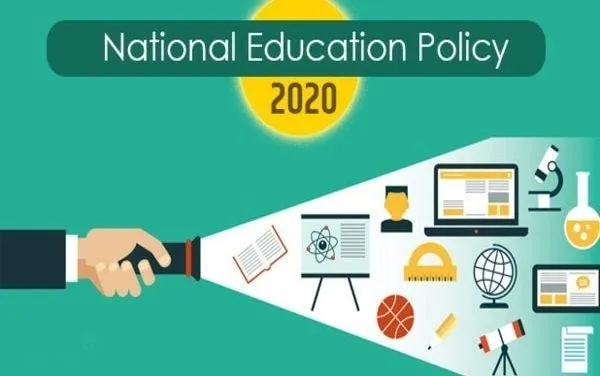National education policy 2020 is the document for planning education system in India, whereas present education system is the outcome of the new education policy 1986. Today in our discussion on education policy we will discuss how present education system is different from the national education policy 2020. Our discussion today will be limited to school education only.
School education-
- Present education system is based on a 10+2 system of school education and takes care of the education of children from age 6 to 18 years of age, because of this system the learning capacity of children from age 3 to 6 years is not utilized. Also over 85% of brain growth takes place before 6 years of age, hence National education policy also focuses on taking care of the education of children from 3 to 6 years of age. For this purpose education system based on 5+3+3+4 will be adopted.
- Present education system is more focused on quantity because during 1986 the focus of the government was to bring more children to school for education as the literacy rate was 48% in 1991 compared to 77% in 2021. But now our focus must shift to quality and National education policy will promote learning through activity from the beginning of school education. This activity-based learning will include problem-solving and logical thinking. Also, a national mission on foundational literacy and numeracy will be launched to make sure that every student has a basic standard in performing basic mathematical operations and basic reading and writing skills.
- The most important concept that present education does not cover is value education. Though for the last 2 years value education has been made part of academics the need is to integrate the value with other subjects and daily life. The new policy will cover issues like ethics, values, sensitivity, social behavior, and others.
- Our culture has produced a lot of material on philosophy, ideas, self-discovery, science, maths, medicine, polity, and others. But this cultural aspect was never made part of studies in the present education system. The new policy will include cultural aspects integrated with all the concerned subjects. This will help in establishing a link between cultural and modern knowledge.
- Similar was the condition with Indian languages as well. The new policy will take necessary steps to include regional languages in the three-language system. Along with regional languages, students will have the option to study Sanskrit throughout their schooling. In the present system 3 language formula is applicable up to class 8, but under the new policy third language can be studied up to the 12th class depending upon the interest of students.
- Biggest change will be made in the assessment system. The present system is based on the summative assessment system, under this system, the focus is on the outcome of learning. The new policy proposes formative assessment, under this system assessment is part of learning and necessary developments are made during the learning itself. The advantage of formative assessment is that the improvements are made regularly within the learning, whereas there are fewer chances of improvement in the case of summative assessment.
- System of the report card will be changed under the new policy. Present report cards only present the academic-related performance of students, other aspects like values, sensitiveness, behavior, duties, sympathy, respect, and others remain untouched. All these aspects will be taken care of in the new policy and a new format will be issued by NCERT and SCERTs of different states.
- It has been observed that learning takes place better in an environment where students get a chance to exchange their ideas with other students. This is a serious problem in rural areas as learning takes place in isolation. Here the new policy proposes to form a cluster of schools within a radius of 4km, these schools will be governed by a common administrator and necessary arrangements will be made for exchange programs and collective participation in various activities.
- Standard setting and accreditation- Success of a plan and policy depends on its implementation. Presently district education department is responsible for all over functioning of schools and this makes them answerable to none, new policy proposes to form different departments for implementation, finance, and quality check. This will increase accountability and proper functioning of the system.
- Sharing of teachers- New policy plans to teach arts, culture, and Indian languages at all schools and all levels, recruitment of teachers will be a big challenge, especially for a school with a low count of students. Here to solve the financial issue of schools policy proposes to recruit teachers on sharing. Two or more schools can come together and hire a teacher without facing financial issues.
